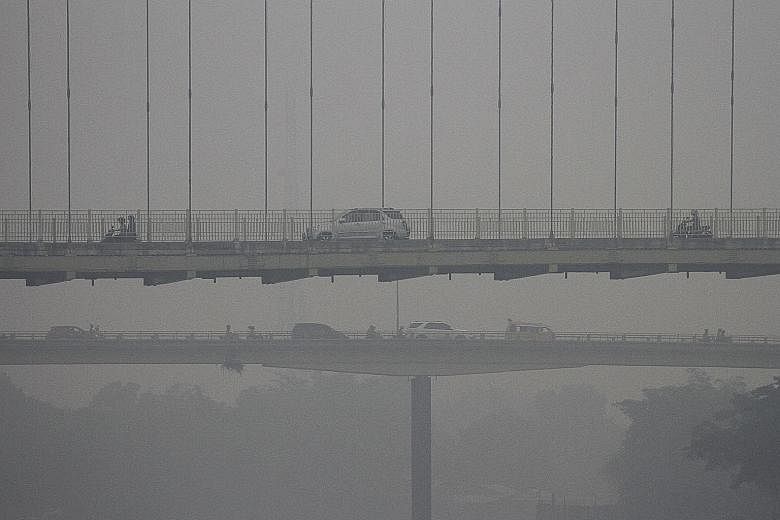JAKARTA • A new palm oil producer grouping being set up by Indonesia and Malaysia would replace "no deforestation" pledges made by major palm oil companies in favour of a joint set of standards proposed by the two countries, an Indonesian minister has said.
Indonesia wants big palm oil companies to row back on the historic pledges made at a climate change summit last year, arguing that they are hurting smallholder producers who cannot afford to adopt sustainable forestry practices.
Indonesia is the world's biggest producer and exporter of palm oil, a key driver of economic growth, and legions of smallholders account for about 40 per cent of its palm output.
"Indonesia and Malaysia have agreed to harmonise and combine our two standards," Indonesia's Chief Natural Resources Minister Rizal Ramli told Parliament late on Tuesday.
"This is an example of how to fight for our sovereignty.
"We are the biggest palm oil producer. Why (should) the consumers from the developed countries set the standard for us as they want?"
Indonesia and Malaysia, which account for 85 per cent of the world's palm oil output, have since late August been discussing a plan to set up an intergovernmental organisation called the Council of Palm Oil Producer Countries.
The move comes after major palm oil firms, including Cargill, Golden Agri-Resources and Wilmar International, signed the Indonesian Palm Oil Pledge (IPOP) following pressure to adopt better practices.
Mr Ramli said IPOP protected the interests of developed countries' vegetable oil markets, and the new council would set a standard that would also consider the welfare of smallholders.
Top palm oil buyers India and China would be lobbied to accept the new standard, he said.
The new council would also look to promote the image of palm oil, stabilise prices, improve cooperation between top producers, and coordinate on production, stocks, biodiesel mandates and re-planting schemes, industry groups have said. Further details are expected to be announced later this month.
Previous attempts to develop greater cooperation between the two palm oil-producing countries have had limited success.
"It really depends on the willpower of both governments, and I suspect they will come together more when prices are low than when prices are high," said Ms Ivy Ng, analyst at CIMB Investment Bank.
Meanwhile, Central Kalimantan was again blanketed in thick haze yesterday despite the absence of hot spots.
According to the Meteorology, Climatology and Geophysics Agency, horizontal visibility in the town of Muara Teweh went down to 200m while vertical visibility was 106m. On Tuesday, the horizontal visibility was between 1km and 2km, while the vertical visibility was around 137m.
A few other regencies in Central Kalimantan were also free of hot spots yesterday, including Murung Raya, East Barito and South Barito.
REUTERS, THE JAKARTA POST/ASIA NEWS NETWORK

